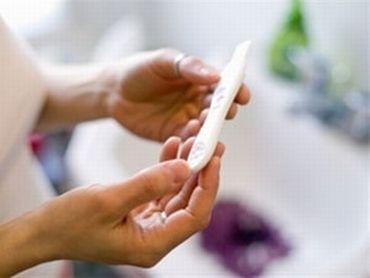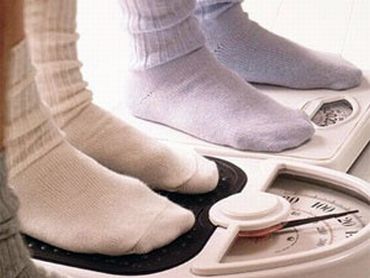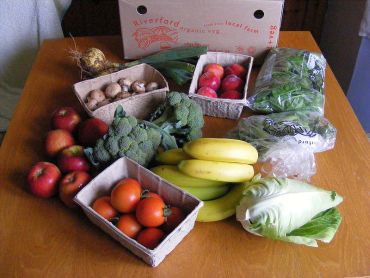Photographs: Courtesy Lifemojo.com
If you and your partner are not meeting with success when it comes to conception, you may want to look into ways that can help improve your chances of conceiving naturally.
It is a fact that infertility affects many couples. Currently, one in seven couples have problems conceiving and experts predict that the crisis will double in the next decade. Adding to that, medications and fertility treatments can be extremely off-putting and expensive.
Infertility should not be confused with sterility. Sterility occurs when the eggs or the sperm are not fertile and incapable of producing offspring. Infertility is diagnosed if conception does not take place after a year of unprotected intercourse. If you and your spouse are under pressure with fertility issues, the following tips can serve to boost your fertility naturally:
1. Know when you are most fertile
Learning how to predict your ovulation is a key to improving fertility. Many couples have difficulty getting pregnant because they are having intercourse at times when the woman isn't ovulating. Generally, most women are fertile during the days just before and during ovulation. Usually ovulation happens between 11 and 21 days after your last period, although it can be different for every woman. If you have a regular 28-day cycle, count back 14 days from when you expect your next period to start, and plan on having sex every other day around that day (days 12, 14, and 16). Make use of tools available for calculating the days when you will be most fertile. You can use a basal thermometer or an ovulation kit (checks the luteinizing hormone levels in your urine) to determine the day of ovulation.
2. Sex positions
Image: You may want to experiment with different positions during intercoursePhotographs: Vaihayasi Pande Daniel
You and your partner may want to experiment with different conception positions during intercourse. In order for his partner to become pregnant, the male must deposit his sperm as close as possible to the woman's cervix.
3. Don't smoke
Image: Medical evidence has shown there is a link between smoking and low sperm countPhotographs: Wikimedia Commons
Medical evidence has shown there is a link between smoking and a low sperm count. A study shows that men who smoke have a lower concentration of a protein called protamine that is essential for producing sperm.
Another study reports that women who smoke during early pregnancy reduce the number of germ cells in the embryo. Germ cells later develop into eggs or sperm, so this reduction has the potential to reduce the baby's future fertility.
4. Reduce alcohol consumption
Image: A study of alcoholics found that only 12 percent of the men had completely normal sperm countPhotographs: Evan Swigart, Chicago, USA/Wikimedia Commons
Excessive alcohol intake is associated with decreased sperm count and motility, as well as sperm morphologic abnormalities. A study looking at alcoholics found that only 12 percent of the men had completely normal sperm counts and health, compared to 37 percent of non-smokers and non-alcoholics. Researchers found that as the amount the men drank went up, sperm counts dropped, normal sperm shape decreased and sperm motility worsened.
5. Lose weight
Image: Excess body fat can lead to an overproduction of certain hormones that disrupt ovulationPhotographs: Courtesy Lifemojo.com
Excess body fat can lead to an overproduction of certain hormones that disrupt ovulation. This doesn't mean that you should go on a crash diet and drop an unbelievable amount of weight in no time, because too little body fat means your body may not produce enough hormones to ovulate each month or to sustain a pregnancy if you do conceive.
A study found that women whose body mass index (BMI) was in the overweight or obese category took twice as long to get pregnant as those with a normal BMI. A separate study found that men with obesity had lower testosterone levels.
6. Exercise
Image: Exercise can help you maintain a healthy body, weight which will boost chances of conceivingPhotographs: Wikimedia Commons
When combined with a balanced and nutritious diet, moderate exercise can help you to maintain a healthy body weight. It is best not to over-exercise as it can actually impair fertility. Try low impact aerobic workouts like walking, swimming and cycling.
7. Learn to relax
Image: Learn to relax by using meditation or other breathing techniquesPhotographs: Jahnavi Sheriff
A lot of couples try harder and harder until there comes a point when they give up on the idea of having a child altogether. And then suddenly they conceive! The problem earlier was the stress of conception. Learn to relax by using meditation or other breathing techniques.
8. Eat a balanced diet
Image: Eat food that is grown naturally from the earth like fresh vegetables and fruitsPhotographs: Zabdiel/Wikimedia Commons
Eat food that is grown naturally from the earth like fresh vegetables, fruits, whole grains, legumes, nuts, brown rice and seeds. Avoid junk food, processed food and foods high in saturated fat. Drink two to three litres of water a day to flush out any toxins in the body.
9. Specific fertility foods
Image: Women can boost ovulation by choosing monounsaturated fats like olive oil over trans fatsPhotographs: Badagnani/Wikimedia Commons
Men need to eat a diet high in zinc (seafood, meat, whole grains, and eggs), selenium (meat, seafood, mushroom, cereals, and nuts like brazil nuts) and Vitamin E (nuts, seeds, olives, and spinach). This can help improve male fertility.
Women can boost ovulation by choosing monounsaturated fats (like olive oil) over trans fats (found in junk food), and vegetable protein (soy) over red meat.
Also, a recent study reports that women who consume at least one serving of high fat dairy every day (such as ice cream, whole milk and cheese) may reduce their risk of ovulatory infertility by 27 percent. Researchers also found that eating two or more servings of low-fat dairy foods like skimmed milk every day appeared to give women an 85 per cent higher chance of infertility due to a lack of ovulation.
10. Fertility yoga
Image: Yoga poses like the Cat Stretch have a a powerful effect on the entire uro-genital systemPhotographs: Saisuresh Sivaswamy
A new branch of yoga called fertility yoga has just recently been conceptualised to naturally foster your body's ability to conceive. The exercises are simple to perform and can be done at home as well.
So you see, natural remedies including diet, lifestyle modification and herbal treatments may help optimise fertility for many couples -- and at a far lower cost!












Comment
article